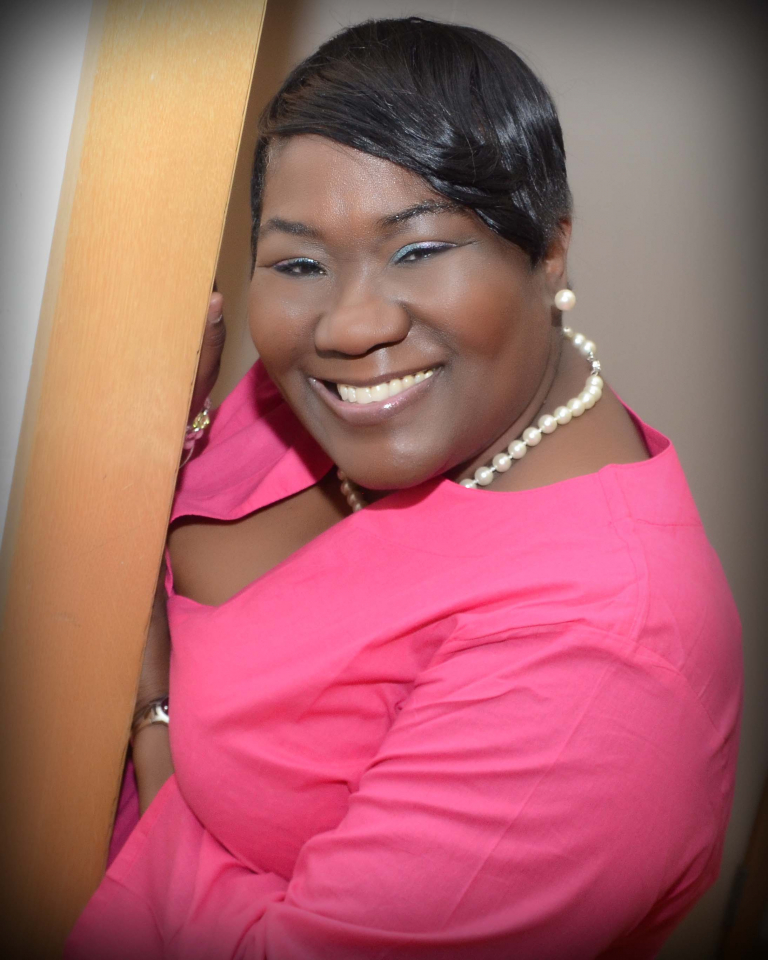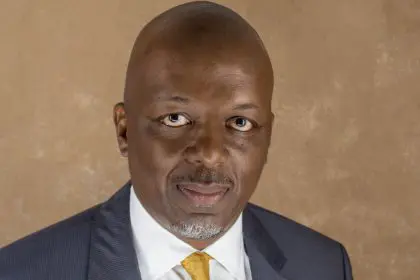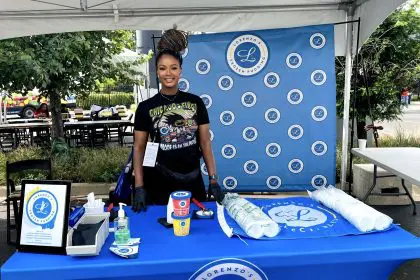
Deirdre L. Jones-Lowman, Ph.D.(c), MBA, CYMC/YLC is the founder of DJ Squared Consultative Group, a for-profit career and HR management consulting group; co-founder of Empowered Community Development Organization, a nonprofit, human and social services organization in Philadelphia and managing director of the Pay it Forward Initiative, a personal development and life coaching initiative which focuses on mentoring and leadership development for at- risk youth, women, and young adults. As a youth mentor and motivational speaker, she encourages youth to set and achieve personal and professional goals by being accountable, socially responsible, and aware of the power of interconnectedness.
How did growing up in Gary, Indiana, prepare you for the world?
Preparing for the world takes a foresight and vision. Growing up in Gary, Indiana, a city of hardworking, blue-collar, steel industry-driven, poverty-stricken families creates thick-skinned but vulnerable individuals. Gary made me tough, “Gary Strong.” Growing up the oldest of five children, to a single mother who valued education, who worked full-time and still had to receive welfare benefits, made me appreciate the strength and resiliency of Black and Brown women. Gary, located between Chicago and Detroit, makes me view urban metropolis as a wealth of eclectic, diverse, but distressed individuals who not only need financial resources but they need physical and mental health resources as well. The disparity is a cyclical reaction, and unless we address the root cause of the issues which tend to be economic, social, and emotional based. The cycle will never end. Life coaching allows individuals the freedom to figure out one issue at a time, identifying which issue takes precedence over the other; prioritizing and then taking action. The confusion and aloofness come from having too many plates in the air and not knowing what to do if they all fall at the same time.
Tell us about your education and training.
I am currently pursuing my Ph.D. [and] writing my dissertation research from Walden University. I graduated with honors with an MBA also from Walden University and graduated with honors from Knoxville College with a B.A. in mass communications and journalism. Recently, I achieved my life coaching certification from the Youth Coaching Institute. Additionally, I have various certifications in Homeownership Program Management, and Housing Counseling and Homeownership from Neighborworks America, a national homeownership initiative.
What inspired you to become an entrepreneur?
I consider myself a social entrepreneur. A social entrepreneur is someone who recognizes a social problem and uses entrepreneurial principles to organize, create and manage a venture to make social change. I aim to help individuals evolve into what they envision in their dreams for themselves. Individuals who are productive and work toward achieving their personal aspirations are positive contributors to their families and subsequently the communities they reside. Life coaching, especially in communities of color contributes to family stability, economic independence, increased self-esteem and self-confidence, personal accountability, and positively helps identify and highlight one’s personal strengths.
Why is it so taboo to get mental health care in the African American community?
Mental health care, in communities of color, is often construed as a weakness, a character flaw.
Mental health goes beyond clinical diagnosis and psychotropic drugs, it also associated with mental health related issues: related to a state of mind, emotions, mental acuity, stress, negative feelings, self-doubt, overwhelmed, anxiousness, and anxiety.
What will you do to change the perception of getting mental health care in African Americans community?
I am seeking to change the adverse perceptions surrounding mental health and mental health related issues. Mental health related issues must be addressed in communities of colors: increasing self-awareness, identifying physical and emotional attributes which escalate into fear, anger, sadness, and overwhelming feelings of dread and anxiousness. Being able to discern between clinical depression and just feeling blue, or at least contacting a health care or helping professional for your mental needs is as important as it is for physical maladies is as important affirming that the emotions and feelings being felt are real and not just perceived. As a life coach, I guide individuals toward eliminating or at least acknowledging these counterproductive feelings or emotions, identifying barriers which prevent them from overcoming the feelings and co-creating an action plan to propel them to move forward. When one’s mind is bogged with misplaced feelings or emotions, they tend to become stagnant, or stuck in the past.
What are three tips you can provide to us to live better lives?
Three tips for living better that I would offer begins with taking care of yourself first. I realize that it sounds selfish to put ourselves first especially when you are a mother, wife, spouse, partner, parent or caretaker, and responsible for the welfare of others. It is easy to put everyone before yourself. Self-care includes healthy eating, taking time out to celebrate small victories, meditating, and laughing, a lot. But more importantly, self-care requires making an investment in your wellbeing, the same way you would pay for health insurance, the gym, trips to the day spa, nail and beauty salon, invest in your mental health. When you feel out of balance, overwhelmed, anxious, contact a helping professional, such as a life coach or health care provider, therapist/counselor. the difference between a life coach and therapist is that a life coach is co-actively involved in your program, guiding you where you want to be. A therapist is looking for a diagnosis.
Second, self-control also helps to provide for a better life. Self-control denotes personal growth and development. As self-awareness increases so does self-control. With life coaching, things that use to bother you, no longer bother you. As individuals grow and develop, “triggers” are ignored or recognized as barriers to individual growth
Thirdly, be openly communicative. For both men and women, life gets better when there is healthy and positive communication. Often, when our minds are cluttered and out of balance with our lives, personal vulnerabilities increase, so the “hard” conversations never take place. Instead, negative banter and dialogue is exchanged as a means of coping with the issue at hand. Instead of coping or just dealing with the issue, individuals must address each issue one at a time, allowing their inner strength and resilience, instead of vulnerability, to catapult them to their next level instead of weighing them down.
Who is your mentor and why?
That’s a great question, I have mentors who have inspired me and I have mentors who encourage me to use my gift. The mentors who inspire me saw my potential to teach and be taught, mentored. Kelley Cornish, I met her about 10 years ago, when I began my financial coaching and empowerment, as a credit union manager. Kelley was the first African-American woman, to hold an EVP at a major pediatric hospital and lead the Talent Management/Diversity and Inclusion department. She inspired me to continue my education and pursue my masters’ degree in Business Administration and Human Resource Management. Because of her mentorship, I realized that human resources is not the only department within organizations concerned with hiring and terminating employees; human resources reflects how the needs and resources — social, financial — of diverse human groups are managed. Mentorship, which encourages me to go out and encourage and motivate the masses. Life coaching focuses on leveraging personal strengths and reinvigorating the human spirit.
What has been your most proud accomplishment?
My most proud accomplishment has to be the birth of my children. Both born prematurely, now they’re ages 17 and 10, and they are my pride and joy. I am so proud of the caring, accepting individuals they have blossomed and are blossoming into. They are critical thinkers and leaders. My husband, Donald, and I encourage them to think outside the box and embrace differences, and continuously learn, grow and change.
What has been your most difficult thing you had to overcome?
The most difficult thing that I had to overcome was the death of my mother in 2007. Everything that I work toward is predicated on strengthening, uplifting and empowering women of color. My mother was my best friend, and she passed away too young. She was only 58 years old. Growing up, we had a tumultuous relationship, fighting, abandonment, issues. It wasn’t until I was 40-years-old that I realize that my mother was an undereducated, young single mother with three children by the age of 24 and by 38, she had two more children. The struggle to raise five children in Gary, Indiana was real. She had limited financial earning capacity and lack of familial support but she provided for us. She was a homeowner. She was beautiful, genius-level smart and charming. I regret that she never met my son; never witnessed my higher education, my MBA or Ph.D. journey, and was not able to see how much I have achieved as a wife, mother, scholar, social entrepreneur and change agent. We spoke every day and our relationship blossomed when I turned 22. I let go of the hurt, resentment, and feelings of abandonment because I could now see life from her perspective, that of a young Black mother. More importantly, I could now relate to her as a woman, not a mother to child, but woman to woman. My mom was 20 years older than me, and I finally got her life lessons, why she was so hard on me, why she felt overwhelmed raising three children at such a young age with no support, hustling, grinding, yet and still giving back to the community. I remember trips to the welfare office, powdered milk and block cheese. I remember her having no money to fix or replace a broken refrigerator. being so broke that we used a room with a broken window to keep our milk cold in the cold Gary winters. I recognize my mother’s resilience, resourcefulness and intelligence, fortitude and drive and was determined to pay her life lessons to me forward.
Where would you like to see your business in the next five years?
In the next five years, I would love for The PAY IT FORWARD INITIATIVE to be a lucrative health, wellness, and lifestyle program; self-sustaining and viewed as beneficial and necessary to communities of color. By 2022, I would like to partner with Corporate America, as a life coach consultant and add-on to their EAP and HR departments. Additionally, I would also like to partner with community organizations to serve as an additional social and human resource for communities. I aspire to receive recognition from Black Girls Rock, BET, and to have a TED talk. for social advocacy and social change on the topic of women’s empowerment and self-sufficiency. I would love for my life coaching business to be at the forefront of change concerning self-care for women, to de-stigmatize mental health in communities of color, and viewed as important as physical health and wellness. Furthermore, I want to teach to share their innate power to empower others. It can be done, one person at a time, each person, pay it forward – whatever it is — taking charge of their lives and moving forward.
Where can people find out more about you and your services? Please provide social media addresses.
To learn more about me as well as my life coaching and personal development services that the PAY IT FORWARD INITIATIVE offers, please visit the website: www.takechargemoveforward.com. Follow me on Twitter: @ t8kchrgmov4ward; Instagram: t8kchargmov4ward; ;ike me on Facebook: t8kchrgmov4ward or Deirdre Jones-Lowman; follow my personal SELFCARE blog: dejaelosaidwhat; my professional profile on LinkedIn: Deirdre Jones-Lowman. My coaching and development services include personal empowerment, life coaching, homeownership and financial counseling and youth and women’s empowerment, youth leadership and development. Life coaching appointments can be scheduled by calling 215-821-SELF.









